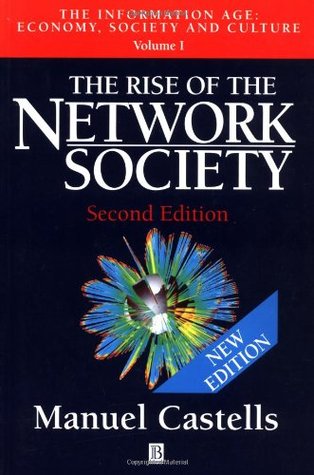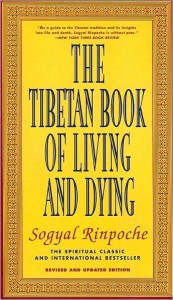Signs and portents are everywhere, disturbance everywhere. With post-apocalyptic imagery now entrenched in popular culture, and all the major faiths prophesying that mankind has reached “The End of Days”, fantastical theories abound on the origins of the internet; that it was an advanced technology gifted across time and space in order to save an emerging race known as humans from an impending apocalypse by allowing the cleverest minds on the planet to aggregate. Whatever the pure truth, perhaps only the Gods will ever know. But there is no doubt the Rise of Islamic State has been paralleled by the Rise of the Network Society. The single most brilliant philosopher and anthropologist in the field has been Spanish sociologist Manuel Castells. His book The Rise of the Network Society was the first in a string of books documenting the economic and social dynamics of the information age.
Samuel Collins from the Department of Sociology, Anthropology and Criminal Justice at Towson University described The Rise of The Network Society as a syncretic masterpiece. The next book, The Power of Identity, contextualizes the “culture wars” of the late twentieth-century in the changing political economy, while End of the Millennium extends his arguments into a cultural futurology.
Collins writes: “It is safe to say that few others could have attempted the scope of this work and that this paean to the information age is the only one of its kind. Remarkably, Castells is largely successful in his evocations of contemporary political economy and identity, a testament to a lifetime of teaching and scholarship.
“While Castells leaves us with no doubt-courtesy of a series of carefully plotted case studies–that similar processes of ‘fixed architecture’ and ‘variable geometry’ are at work at every level in all places on the planet, the breathtaking scope of his work (extended research and interviews on ev
ery continent), conceals the extent to which the social sciences are imbricated in the same forces that work to transform other areas of life. Hence, the ‘information explosion’ in sociology, anthropology and urban studies has been matched by the attenuation of ‘information’ in the public sphere to a conservative consensus castigating the victims of failed neoliberal policy. It is that mechanism: the ability to eliminate certain ideas–particularly contextualized dialectical analysis–from the terms of debate, that we find most invidious in ‘information society’.”
Based on research in USA, Asia, Latin America, and Europe, The Rise of the Network Society aims to formulate a systematic theory of the information society which takes account of the fundamental effects of information technology on the contemporary world. The global economy is now characterized by the almost instantaneous flow and exchange of information, capital and cultural communication. These flows order and condition both consumption and production. The networks themselves
reflect and create distinctive cultures. Both they and the traffic they carry are largely outside national regulation. Our dependence on the new modes of informational flow gives enormous power to those in a position to control them to control us. The main political arena is now the media, and the media are not politically answerable. Manuel Castells describes the accelerating pace of innovation and application. He examines the processes of globalization that have
marginalized and now threaten to make redundant whole countries and peoples excluded from informational networks. Australia, with the 44th slowest internet in the world, is one of those being cut from the flow, with tragic consequences for social inclusion and participation in the construction of public policies.
As Castells writes, even with many in the population possessing smart phones, the pitfalls and failure to develop arise within the education system: “The problem is the ability to act over the internet, which mainly depends on the educational and cultural level of the people. A country with educated internet progresses. A country without education use the internet to ‘stupidity’.
The devolution of journalism and the transformation in the construction of news away from professionals also comes into play.
Castells argues that another very serious aspect is that most journalism and communication schools are still teaching as if they were in the Middle Ages, without having entered the digital world. So the poor professional journalists have to learn by themselves without masters, because the professors still think that the theory of communication needs to be based on rhetoric, linguistic analysis, and not the transformation of communication.
Today’s society is increasingly interconnected and the greater the amount of information available on the Internet, increases the power of the organizations that own the data published in the World Wide Web. For Manuel Castells, one of the leading thinkers of social change with the digital era and author of over 25 books, all data and information processed on the web, worldwide, is in some way connected.
Castells warns of the concentration of information by surveillance agencies and companies technology, and the decentralization of communication. “The digital surveillance is full today. Everything is digitized and connected. All of our data and our lives are connected. All [which uses some sort of digital technology] has a code and is identified digitally. Everything is recorded forever. If you want to escape surveillance, pay in cash and do not buy a plane ride, go on foot.
Castells says that today, privacy is not what one wants to hide but the “right of the people to decide what part of their lives they become public.”
In Manuel Castells’ Why Networks Matter he concludes: “Networks matter because they are the underlying structure of our lives. And without understanding their logic we cannot change their programmes to harness their flexibility to our hopes, instead of relentlessly adapting ourselves to the instructions received from their unseen codes”.
With this particularly poignant reference in mind, he takes the reader through the recent evolution of networks and explains how we are not living in an information society, or a knowledge society, but that we live in a network society. This is thanks in particular to the advancement of microelectronics and software-based communication technologies, smart phones, Facebook, Twitter, and so on, which have become the tools of choice for people looking to connect with other people.
Before the introduction of these tools to the marketplace, people were acutely limited when it came to connecting with a broader circle of people. Castells identifies the shortcoming of the old-world networks as an “inability to manage coordination functions beyond a certain threshold of size, complexity and velocity”.
In other words, people were limiting their audience to whoever they knew the home address or home phone number of, and the message was never able to be broadcast to a person’s entire network simultaneously.
However, he theorises that the proper identification of our society should be in terms of its social structure. So instead of characterising society by its technologies, we should characterise it by its networks that are powered by these technological tools.
Castells explains that there are seven broad consequences to this evolving network, and I have summarised them here:
- Globalisation
- Networked organisations outperform command-from-the-top bureaucracies.
- Increased collaboration of political institutions across nations.
- Civil society being reconstructed at both the local and global levels through a network of activists.
- Networked individualism transforming sociability.
- All social practices participate in the media.
- A shift of power from institutions to the network, in particular the “switchers” or the mechanisms connecting or disconnecting the certain networks.






